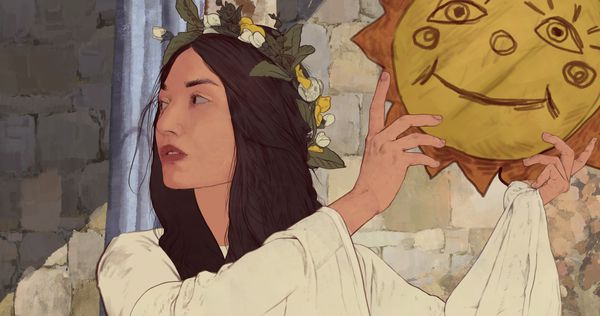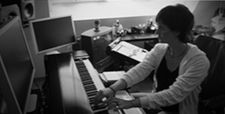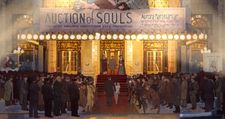 |
| Aurora's Sunrise. Christine Aufderhaar: 'I was just fascinated by the story... I think it's a very important project' Photo: Bars Media |
The film screens as part of the Baltic Competition at Tallinn Black Nights Film Festival (PÖFF) this week and has also recently been at documentary festival IDFA. It is Armenia’s submission for the Best International Feature at the Oscars. The power of the story is supported by a nuanced score by composer and classical pianist Christine Aufderhaar, whose music helps guide us into the emotional experience of Aurora. We caught up with Aufderhaar ahead of its screenings at PÖFF to chat about the project.
“I love the story. And I didn't know anything about the history, the kind of side about Germany being involved and all that stuff,” says Aufderhaar referring to the fact that Germany was an ally of the Ottoman Empire, who perpetrated the genocide, at that time. Many also draw links between the genocide and a “legacy of impunity” which many experts believe led to the Holocaust.
Aufderhaar adds: “I was just fascinated by the story. But then when I got involved, there was really so much happening there. I think it's a very important project.”
 |
| Christine Aufderhaar at the piano. Speaking about her approach, she says: 'It's in myhead already, and I just go there and play' Photo: Courtesy of Christine Aufderhaar |
Aufderhaar says she is very “precise” when it comes to her work, redoing things right up to the final cut but she says that she adopts the same approach whether she’s working with live action or animation.
She adds: “It's about the structure. For me, it's about the architecture. And it doesn't matter if it's just dialogue or someone who's running or whatever, I always try to be in sync with the picture somehow. To find a unity somehow.”
When it comes to the process of composing, Aufderhaar says she likes to sit at her piano.
“I have to play it,” she says. “I love the piano. So I just do everything on the piano.
It's in the head already, and I just go there and play. I don't like to write the rhythm. I'm awful at rhythm. So I just make points. It's like brainstorming.”
I’m surprised she says she doesn’t like to write the rhythm because the final score has a strong sense of it thanks to flowing violin.
Aufderhaar says: “it's a train piece. And the train is running and running. I had to go strong and I like when it's getting more and more. So I put different things underneath it.”
“It really was a journey, because it was a long project. Normally I have four to six or eight weeks, and then it's done. But this was half a year and then another two months.”
When it comes to working with an orchestra on the finished score, Aufderhaar says there are a lot of dynamics involved, in terms of all the individual musicians. I ask her if it’s a thrill to finally hear something you’ve been working on alone played by an orchestra.
“Yes, it’s a thrill because it's so physical it's like, like being in the sound. It's so it's so different. And when you hear the soul of the musicians, it's just beautiful. You feel when they are really involved in playing - I love it.
In terms of genre, Aufderhaar although she gets a mix of work, including a lot of thrillers and some comedy, she particularly loves drama.
She says: “Well, also, there's more secrets and I love when there are secrets because with the music you can tell what's behind and it’s not so obvious.That can apply also for comedy, but drama just touches me more.”
You can read more about Aufderhaar’s work - and listen to some of the music from the score on her website aufderhaar.com






















